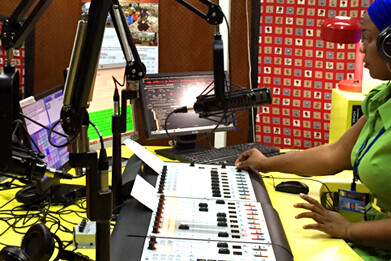Two UN experts on freedom of expression have commented on the recent Brazilian government agenda regarding public media. The two rapporteurs expressed their concerns as the interim Federal government intervenes in the administration of the Brazilian Public Broadcaster (EBC).

The federal government, currently led by interim president Michel Temer, announced cuts to the EBC funds, a change in its administration and a plan to merge the National Controller’s Office (CGU) into a new Ministry of Transparency, Monitoring and Oversight. The planned cuts aim at maintaining a few of the company’s departments, such as the website and the news agency, whilst closing down the public TV channel.
In addition, Temer announced the intention to remove EBC’s council, directly interfering with the organisations’ management. UN special rapporteurs, David Kaye and Edison Lanza, defined these measures as “negative steps for a country known for its solid commitment to freedom of opinion and expression.”
These measures are just part of a series of interventions that the interim government has taken lately. In May, Temer fired the EBC’s chief executive officer, who was reinstated after an appeal to the Supreme Court. Shortly after, the new administration suspended the contracts of some of the EBC journalists due to alleged “political bias” against the new Government and also cancelled some TV programmes. However, the UN Special Rapporteur says that the government’s concerns “do not justify its interference in the national public broadcaster’s management.”
The government’s interference does not seem to be ending soon. Temer recently decided to stop live broadcasts of official events outside of Brasilia that involve presidential participation.
Our CEO, Sally-Ann Wilson, recently spoke with EBC in an interview, stating how public communication will always be a source of tension, and how crucially important public media is in any country to ensure freedom of expression. It is thus important that public broadcasting remains as independent as possible. “International standards require States to ensure that public broadcasting services operate in an independent manner,” said Kaye and Lanza.
These are significant measures that could shut down public TV and undermine a stable future for public broadcasting in Brazil. For this reason, the UN rapporteurs have started a dialogue with the Brazilian Government on the measures taken and their compatibility with international standards for the right to freedom of opinion and expression, and to ensure a public service to all citizens.
Related Posts
7th June 2016
Fired CEO returns to his role at Brazilian broadcasting company
Public service broadcasting in Brazil…
